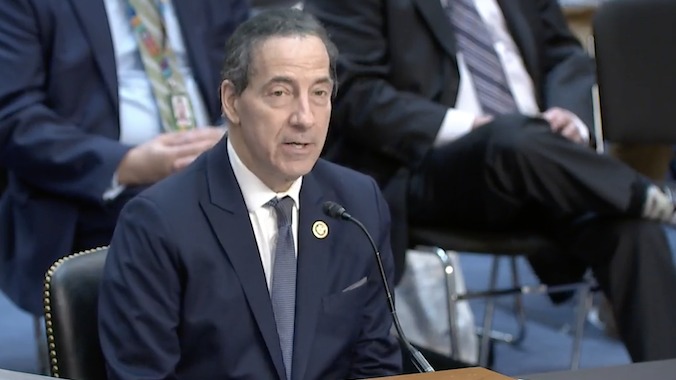‘Campaign of Deception’: Congressional Report Reveals Decades of Big Oil Malfeasance
Photo by Shutterstock
Exxon did, in fact, know. The landmark reporting last decade and subsequent hashtag campaign on the idea that Big Oil was well aware of fossil fuel emissions’ impact on the climate dating back to the middle of last century is old news by now, but a new joint report from the House Oversight Committee and the Senate Budget Committee demonstrates the sheer scope of bad deeds that helped give us the warming climate we have today.
“Documents demonstrate for the first time that fossil fuel companies internally do not dispute that they have understood since at least the 1960s that burning fossil fuels causes climate change and then worked for decades to undermine public understanding of this fact and to deny the underlying science,” the report reads. It is the culmination of a three-year investigation undertaken by House Oversight Democrats, a probe which has unearthed thousands of internal documents from ExxonMobil, Chevron, Shell, BP, and the American Petroleum Institute and U.S. Chamber of Commerce.
“Our investigation uncovered compelling evidence of aggressive industry deceit which continues to this day,” said Congressman Jamie Raskin (D—MD) in prepared testimony before the Senate Budget Committee on Wednesday. “Big Oil’s campaign of deception and distraction undermines the efforts we need to mobilize our people and government to save our climate, our habitat, and our species.”
There is evidence that the major oil producers knew the basic facts about global warming since the mid-1960s, and proactively worked to “undermine public understanding” of the issue; that they positioned methane gas as a cleaner “bridge fuel” despite having ample indication that, when leaks are included in a lifecycle emissions analysis, it is likely not much better than coal; that the ubiquitous advertising campaigns for supposedly green alternatives like algae-based fuels were basically window dressing, in some cases spending nearly half as much on the PR blitz as on the R&D itself.
Just laying out what the companies knew and when, though, is really only step one. “After seeing the findings of our investigation, I’m convinced that a society-wide challenge will be necessary for us to hold Big Oil accountable for profiting for decades from carbon-fueled climate change while systematically deceiving the public about its causes and its perils,” Raskin said. The real goal is to make the companies pay for what they did.
The Senate hearing also included testimony from Sharon Eubanks, who was lead counsel for the Justice Department’s successful federal racketeering case against the tobacco companies in 2004 and 2005. “Both industries lied to the public and regulators about what they knew about the harms of their products, and when they knew it,” Eubanks said in prepared testimony. “The similarities between the conduct of the tobacco industry and the petroleum industry form a solid and appropriate basis for investigating the petroleum industry.”
There are already plenty of state-level lawsuits against Big Oil that argue they have caused substantial damages through their business practices and years of obfuscation. A federal version, though, could have a long reach. And as Raskin pointed out, a finding against the industry might be meaningful: high school smoking rates have dropped from thirty-five percent to the low single digits in the years since the feds began trying to hold the companies accountable.
“At the core of the liability issues for the fossil fuel industry,” Eubanks said, “is that no company has acknowledged – just as the tobacco companies refused to a acknowledge – that its product is the problem.”